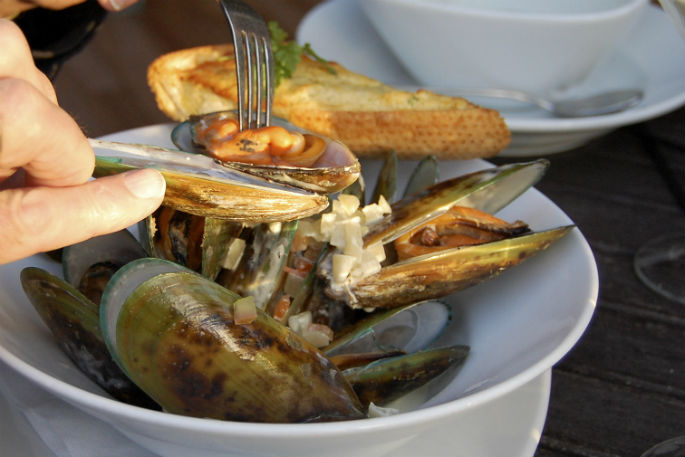People are being urged to keep things golden this festive season and summer so your whānau and friends are safe from foodborne illness.
"In the warmer summer months, we tend to eat outside, travel to enjoy picnics and barbecues, gather kaimoana more frequently, and enjoy social gatherings," says New Zealand Food Safety deputy director-general Vincent Arbuckle.
"We want everyone to spend their holidays enjoying their time off, rather than getting sick from the food they eat.
“The most common foodborne illnesses in New Zealand are campylobacteriosis, salmonellosis and yersiniosis.
“They all have really nasty symptoms, and can result in days of illness.
“For people who are elderly, very young, immunocompromised, or pregnant, the complications can be severe and, in rare cases, fatal.
"Fortunately, there are simple things we can do – some 'golden tips' – to help protect ourselves and our loved ones.
"To help you get the most out of your summer, we're sharing our top 5 tips for good food safety practices."
Handwashing is number one
Washing your hands is the first line of defence and one of the best ways to prevent harmful bacteria spreading to your food.
Wash hands thoroughly with soap and warm water, and dry them well before handling food, and always wash them after handling raw meat and poultry (like chicken and eggs), going to the toilet, or changing nappies, touching pets or animals, gardening, or any other activity that makes your hands unclean.
On the go with food? Chill it
Store foods like salads, meats and cheeses in a chilly bag or bin with ice packs until needed. Cover and chill your food until you cook it – and chill any leftovers as soon as possible too.
If you have long travel times after shopping or won't be going home straight away, have a chilly bag or bin with ice packs in your car to transport chilled or frozen foods, and transfer them to the fridge or freezer as soon as you get home.
Don't contaminate your plate – handle raw chicken safely.
The Chicken Scene Investigators are back on the case this summer to help prevent you getting sick from campylobacter bacteria due to unsafe handling of raw chicken.
Avoid washing raw chicken before preparing it as this can spread bacteria in the kitchen – rather, pat chicken dry with a paper towel and put the towel in the bin.
Always wash your hands with soap and warm water after handling raw chicken.
Don't let raw chicken or its juices touch ready-to-eat foods, and make sure you cook your chicken thoroughly.
Barbecue like a pro
Use separate utensils, chopping boards and plates for raw and cooked meat, and barbecue meat until it is more than 75°C all the way through.
Turn chicken often so it cooks evenly.
Make sure your barbecue and cooking tools have been cleaned with soap and water before using.
Marinate meat in a covered container in the fridge.
Keep raw meat and cooked food or ready-to-eat foods (like salads) separate.
Check before you collect kaimoana
New Zealand Food Safety issues public health warnings when there are unsafe shellfish biotoxin levels, advising the public not to gather or consume shellfish.
Cooking does not kill the toxins and eating toxic shellfish can make you very sick, or even be deadly.
Stay informed by subscribing to our shellfish biotoxin alerts.
Check out the current warnings on our website.
Download and check our NZ Fishing Rules App and look out for signage at your local beach.
Thoroughly cook any shellfish you do collect from safe areas this summer due to risks around Vibrio parahaemolyticus.
Vibrio bacteria can cause illnesses like gastroenteritis, blood poisoning and wound infections.
It's especially important for those with underlying health conditions, pregnant and older people, and younger children to avoid eating raw shellfish.
"New Zealand Food Safety also has specific information for anyone with compromised immunity, allergies and our Safe and Healthy Pregnancy Guide," says Vincent.
"We recommend that you also sign up for food recall alerts to stay on top of any recalled food products – this is particularly important for people with food allergies.
"We hope that everyone has a safe and enjoyable summer. Wherever you're gathering this festive season – keep it golden."



0 comments
Leave a Comment
You must be logged in to make a comment.